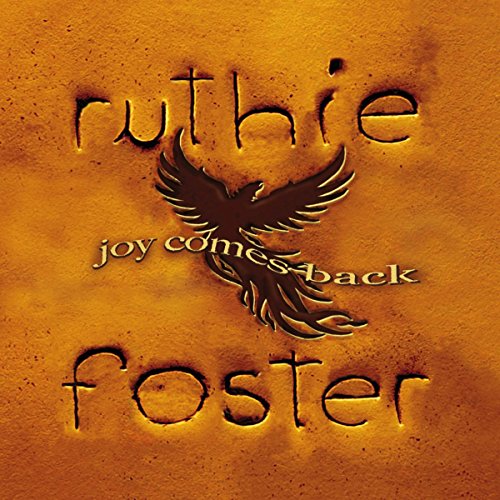
Ruthie Foster
Joy Comes Back
Release Date: Mar 24, 2017
Genre(s): Blues
Record label: Blue Corn Music
Music Critic Score
How the Music Critic Score works
Buy Joy Comes Back from Amazon
Album Review: Joy Comes Back by Ruthie Foster
Great, Based on 5 Critics
Based on rating 8.1/10
By any measure, Ruthie Foster is on a roll. Her previous three albums--2009's breakthrough opus The Truth According to Ruthie Foster, 2012's Let It Burn, and Promise of a Brand New Day from 2014--all earned GRAMMY nominations for Best Blues Album. And that's in addition to a string of accolades that includes three consecutive Blues Awards, an Austin Music Award for Best Female Vocalist and a Living Blues Artist of the Year Award for meritorious achievement.
Based on rating 8/10
Like 2014's Promise of a Brand New Day before it, the title of Ruthie Foster's 2017 album Joy Comes Back promises something optimistic. Joy Comes Back does just that but from an entirely different angle. Between the two records, Foster separated from a long-term partner, and she coped by settling down in her hometown of Austin, Texas, recording the new album with her friend, producer Daniel Barrett.
Based on rating 4
BY LEE ZIMMERMAN Ruthie Foster is on a roll. Her 2009 breakthrough, The Truth According to Ruthie Foster and its 2012 follow-up, Let It Burn, garnered Grammy nods for best album of the year in the blues category. Promise of a Brand New Day, the album that came after, rode that momentum and became her most successful album yet. It would seem then that Foster has good reason to name her new album Joy Comes Back, because, if anything, it finds her expanding her palette while resulting in her most diverse offering yet.
Based on rating 8/10
I know this friendly, straitlaced white Iowa grandma who doesn't have any obvious vices. Never seen her drink whiskey or gossip with friends, and she has been happily married for several decades. We talk, but the only time I see her get really excited is when she learns Ruthie Foster is playing nearby—which means anywhere in a 200-mile radius—or has a new record coming out.
Based on rating 6/10
If Joy Comes Back, the latest album by veteran folk-blues performer Ruthie Foster, was an old school cassette tape, it would probably be left in your tape player on Side B, and suffer from being constantly rewound rather than played through. The first half of the album is almost offensively bland, like coffee chain background music on downers. It features two fairly insipid songs by Grace Pettis, who also plays rhythm guitar on the album, and "Open Sky," a middling Foster original, plus a few other forgettable tracks. But at the halfway point, it all changes, and in an in-your-face way: acoustic guitar-playing, folk-festival mainstay Foster covers Black Sabbath.
'Joy Comes Back'
is available now

